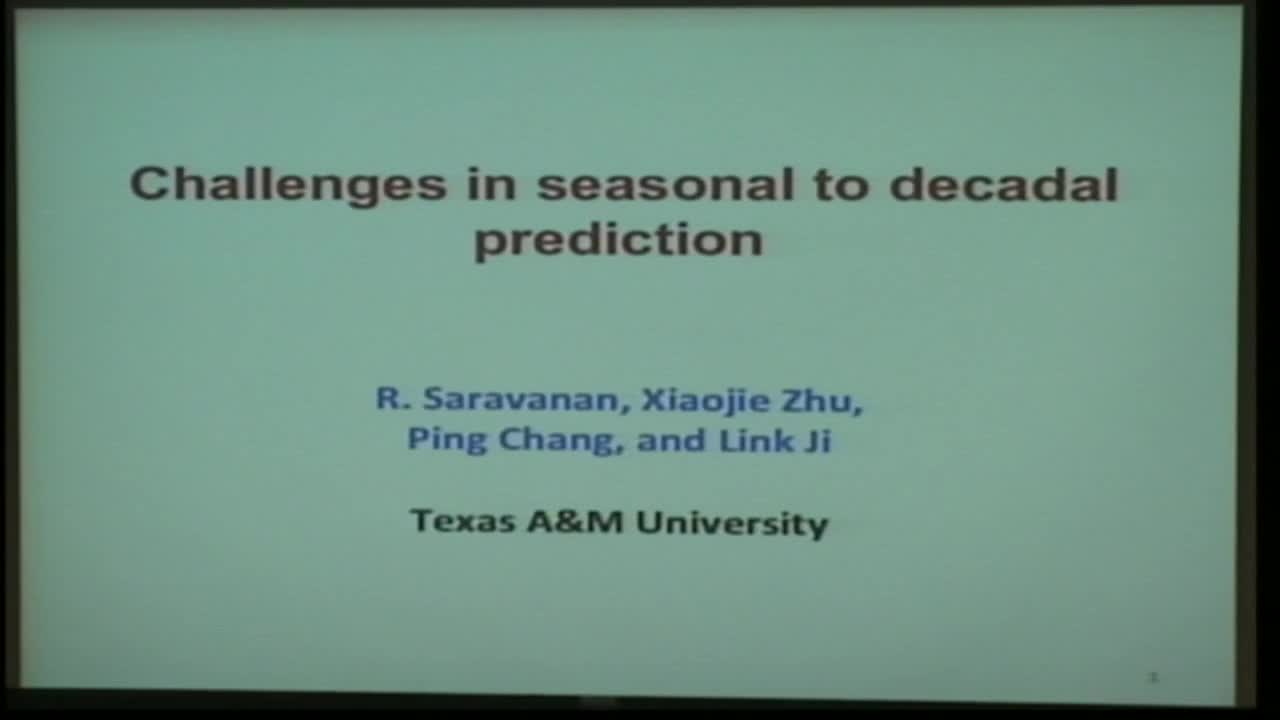The Challenges of Seasonal to Decadal Climate Prediction
Presenter
November 20, 2013
Keywords:
- Prediction
MSC:
- 62M20
Abstract
Climate prediction may be defined as probabilistic forecasting of the state of the atmosphere-ocean system for lead times of a season or longer. Explicitly or implicitly, climate prediction forms the basis of all socio-economic planning, such as water resource allocation or insurance risk assessment. Climate prediction is carried out using dynamical and statistical models over a range of timescales, ranging from seasonal to centennial. Prediction skill derives from two distinct sources of information: (I) knowledge of the initial state of the atmosphere-ocean system, and (II) knowledge (or projections) of the time evolution of external “boundary conditions” such as the radiative forcing associated with greenhouse gases.
In this talk, some of the challenges in carrying out seasonal to decadal climate predictions are analyzed, encompassing both dynamical and statistical approaches. One of the biggest challenges is the estimation of the initial state of the global ocean, and data assimilation can play an important role in addressing this. Another challenge is development of dynamical models of the atmosphere-ocean system that are able to simulate the current state of climate with fidelity. The rapid loss in the skill of climate prediction at regional spatial scales, as opposed to predictions of low-order spatial moments like the global-mean surface temperature, poses yet another challenge to the utility of climate predictions.
